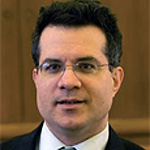The wave of recent student protests at the University of Missouri, Yale University and other college campuses has revived a long-standing debate about the tension between free speech and policies of diversity and inclusion.

That tension is vastly overstated, said a First Amendment expert at Washington University in St. Louis.
“The vast majority of today’s campus activists are
working to expand free speech, not to limit it,” said Greg Magarian, JD, professor of law in the School of Law and noted expert on freedom of speech and the Constitution.
“By fighting for diversity and inclusion, they seek to broaden the range of both ideas and participants in public debate,” Magarian said. “On the other hand, the harshest critics of this campus activism seek to maintain an inequitable status quo that unjustly amplifies their own voices. They don’t want their ideas challenged. Perversely but cleverly, they wrap their defense of inequality in the gauze of ‘free speech’.”
We have seen instances where campus activists have violated or challenged free speech principles, Magarian said.
“Those instances have rightly been criticized,” he said. “Some proportionality, however, is in order.”
Free speech, properly understood, doesn’t mean the people who dominate public debate now get to dominate it forever, Magarian said.
“Free speech means that everyone should have a chance to participate in public debate, and that no idea is excluded,” he said. “If campus activists threaten that ideal, we should call them out.
“But today’s campus activists, by fighting for diversity and inclusion, are doing much more good than harm for free speech. Their sharpest critics pose the much graver threat to free speech.”